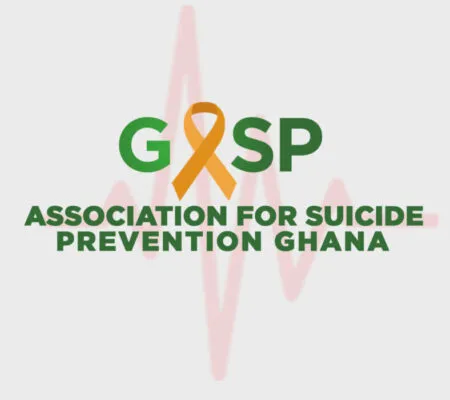The Association for Suicide Prevention Ghana (GASP) has called on government and stakeholders to significantly increase investment in mental health services as part of a broader strategy to improve wellbeing and reduce the morbidity and mortality associated with suicide. The appeal comes as Ghana joins the global community in marking this year’s World Suicide Prevention Day (WSPD) under the theme “Changing the Narrative”.
The 2025 observance continues a triennial theme adopted by the World Health Organization (WHO) and the International Association of Suicide Prevention (IASP) for 2024–2026. The aim is to raise awareness about the global suicide crisis, challenge harmful myths, reduce stigma, and promote open, compassionate conversations about suicide. In a statement copied to the Ghana News Agency, GASP noted that Ghana ranks among the countries that have taken bold steps to address suicidal behaviour, citing the recent repeal of laws criminalising suicide attempts as a significant milestone.
Despite this progress, the Association warned that stigma, social exclusion, and cultural taboos continue to prevent people experiencing suicidal crises from seeking help. “Suicide is preventable and evidence abound that persons with suicidal intent who seek help get better and are able go on to lead normal lives,” the statement said. GASP stressed that changing the narrative means moving from silence and misunderstanding to openness, empathy, and support, thereby creating environments where people feel safe to speak up and access help.
The organisation expressed concern that the persistent stigma and silence surrounding suicide hinder open discussion, limit research, and obstruct the identification and prevention of risk factors. It called for the development and implementation of evidence-based strategies, improved access to quality care, and assurance that those in distress receive the support they need.

GASP pointed to research showing that underlying mental health challenges such as depression, anxiety, and stress, combined with socio-economic factors like poverty, relationship conflicts, oppression, marginalisation, and certain cultural and religious influences, elevate suicide risk. Among children and young people, parent–child conflicts, poor academic performance, a lack of purpose, substance misuse, gambling and pornography addictions, and excessive unregulated screen time have all been linked to suicidal behaviour.
The statement highlighted alarming global and regional statistics: suicide is the third leading cause of death among 15–29-year-olds worldwide, with more than 720,000 people dying by suicide each year. Africa records the highest rate—11.5 per 100,000 people—compared to the global average of 8.9. In Ghana, WHO estimates from 2021 indicate that 8.1 people per 100,000 die by suicide annually. GASP described suicide as not only a personal, family, and community tragedy but also an economic challenge, estimating that each death by suicide costs an average present value of US$92,576 per year.
Given these realities, the Association urged African governments, and Ghana in particular, to prioritise suicide prevention among adolescents and young adults through comprehensive national policies. It reaffirmed its commitment to driving change locally, working with partners such as WHO Ghana, LifeLine International, and media professionals to develop culturally sensitive guidelines for responsible suicide reporting.
“Let’s all work together to change the narrative to prevent suicides. Suicide prevention is everyone’s business,” the statement concluded.
Source: Suicide Prevention: GASP calls for investment in mental health, reduce morbidity | Ghana News Agency



